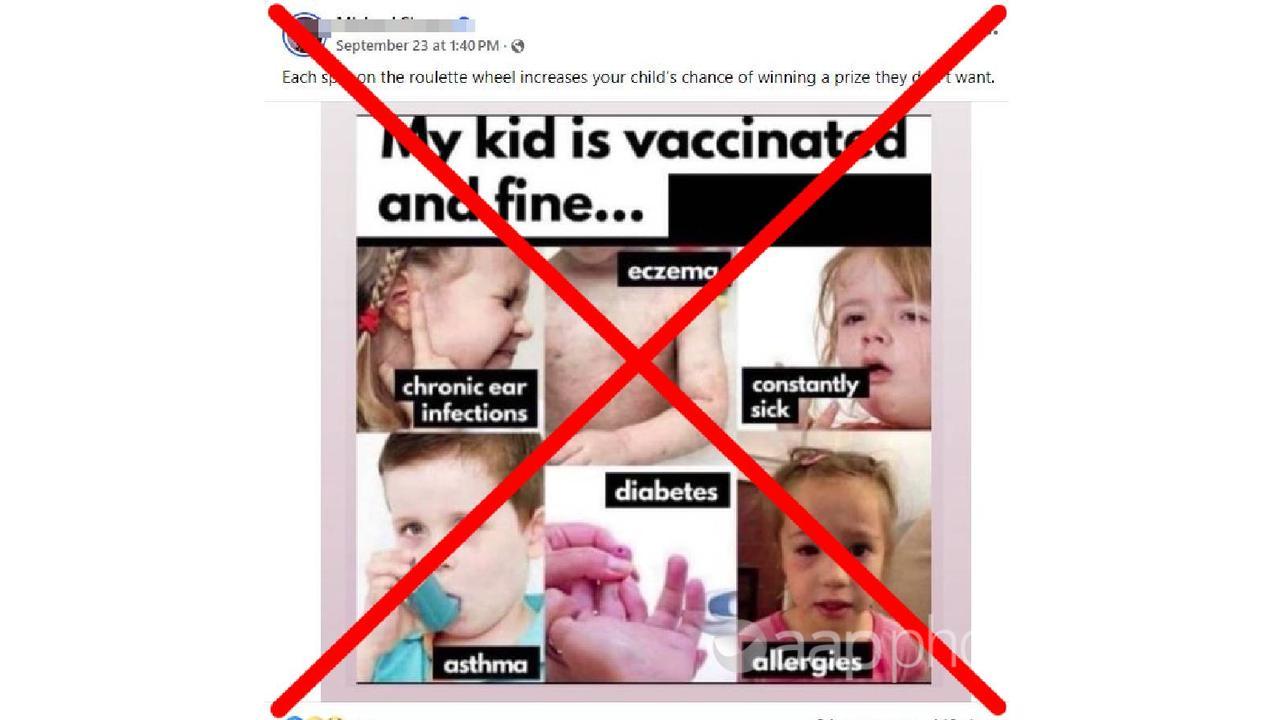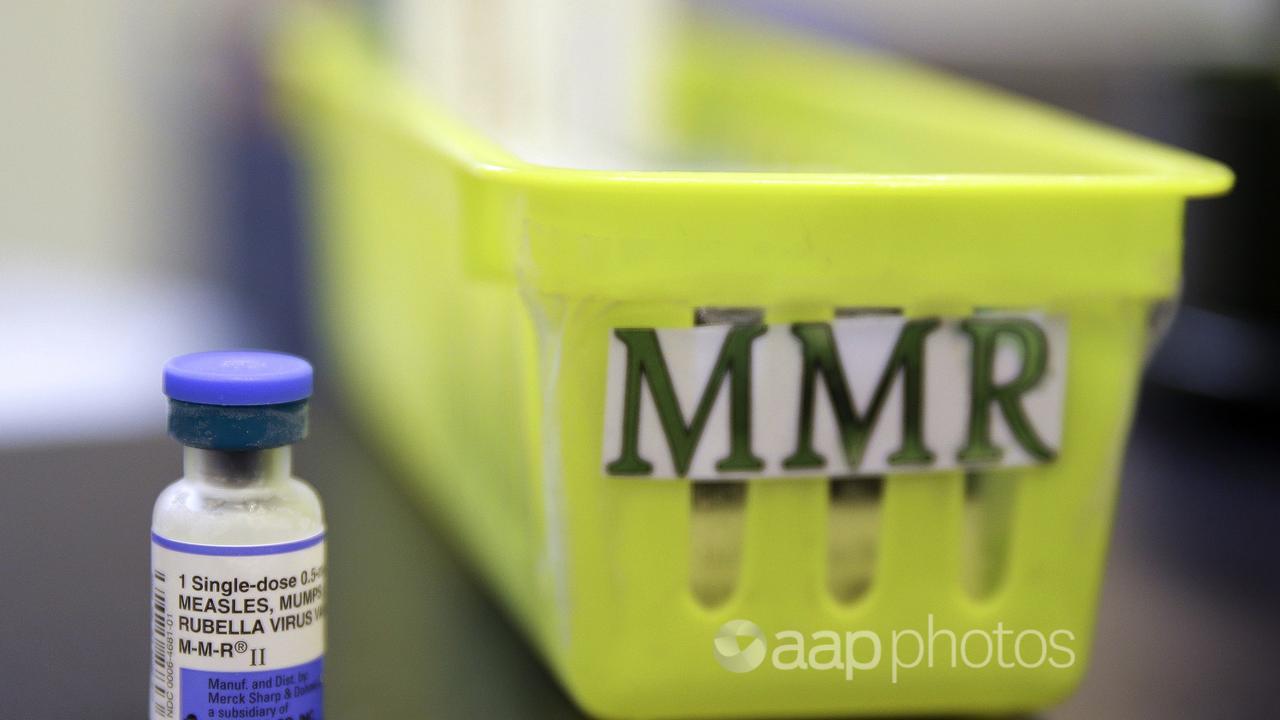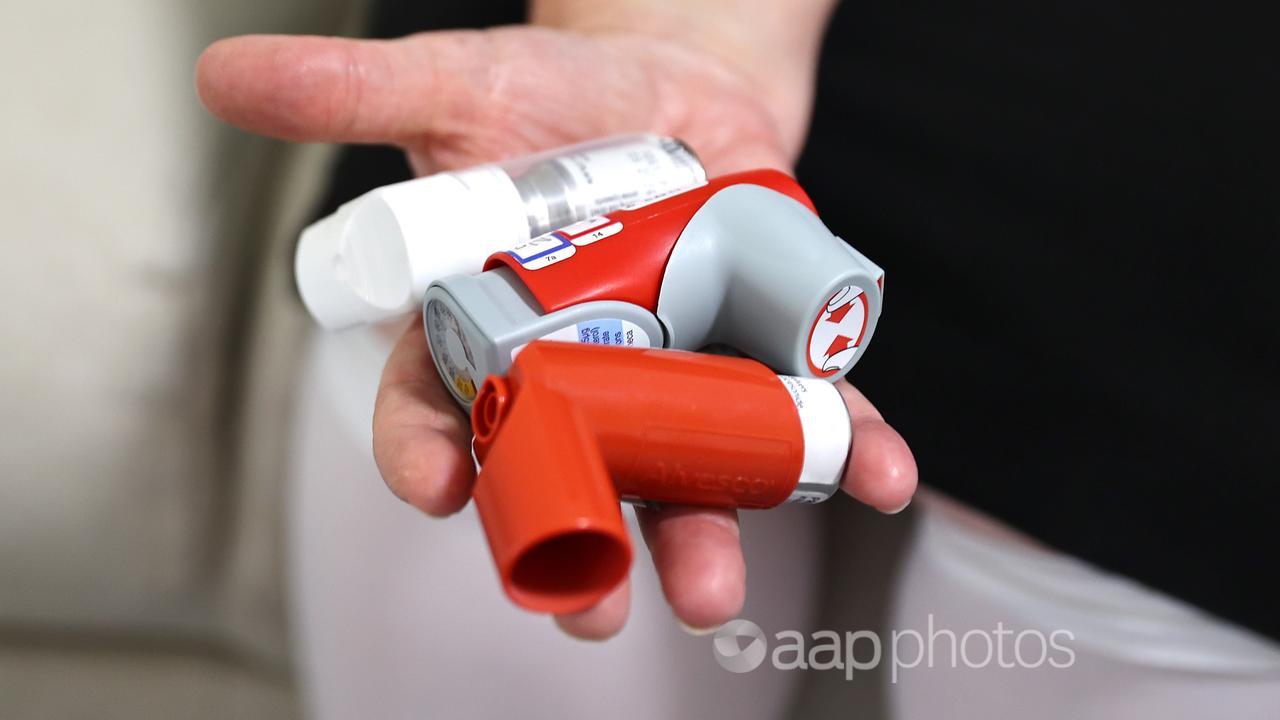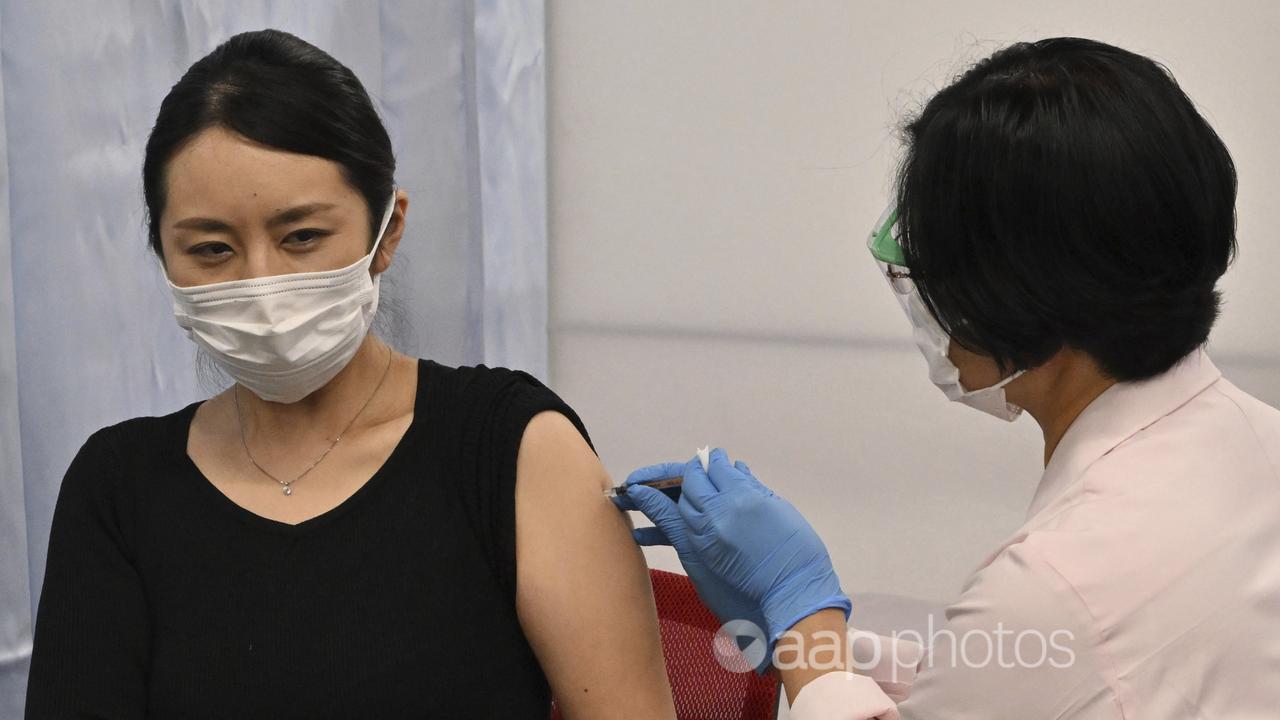AAP FACTCHECK – Routine vaccinations are linked to the development of diabetes, multiple social media posts claim.
This is false. Numerous studies have failed to find any association between vaccines and diabetes.
Several social media users are sharing variations on the claim, including a Facebook post that suggests childhood vaccines are linked to various illnesses, including diabetes.

Wording included in one post listing vaccine ingredients, such as aluminium and phenol/phenoxyethanol [2-PE], has gone viral, with numerous examples of the claimed link to diabetes being made by Australian social media users and others around the world.
Experts told AAP FactCheck the potential link had been the subject of numerous large, high-quality studies that had all come to the same conclusion.
Pediatrician Lucy Deng, vaccine safety lead at the National Centre for Immunisation Research and Surveillance, confirmed there’s no evidence of any link between vaccines used in Australia’s National Immunisation Program and an increase in chronic medical conditions, including diabetes.
A large-scale, country-wide Danish study looked at more than 700,000 children born between 1990 and 2000 and found there was no association between type 1 diabetes and routine childhood vaccination.
Another study used large health management organisations in the US to identify children with diabetes born over a nine-year period from 1988.

It found children who received whole-cell pertussis (whooping cough), MMR (measles, mumps, and rubella), Hib (Haemophilus influenzae type b), hepatitis B or varicella (chicken pox) vaccines were at no greater risk of diabetes than children who did not receive those vaccines.
A 2015 study looked at links between routine vaccinations and an increased risk of childhood diabetes, while a 2017 study looked specifically at links with vaccination in early childhood.
A 2019 study looked for any link with the human papillomavirus (HPV) vaccine, while a 2014 study investigated a link between the influenza vaccine taken during pregnancy and the development of gestational diabetes.
All of the studies came to the same conclusion – there is no association between vaccination and the development of diabetes.
The findings are mirrored by the advice of Australia’s National Centre for Immunisation, Research and Surveillance.
Dr Deng told AAP FactCheck individuals with chronic medical conditions, such as diabetes and asthma, are at increased risk of complications from vaccine-preventable diseases.

“Therefore,” she said, “vaccination is strongly recommended for these individuals.”
Michael Good from Griffith University and Margie Danchin from the University of Melbourne both confirmed Dr Deng’s findings, adding there was no evidence of a link between vaccines and diabetes as well as several other conditions specifically mentioned in some of the Facebook posts, i.e. eczema, allergies and chronic ear infections.
“I have worked in vaccine development my entire working life and have never seen any evidence that vaccines cause these diseases,” Professor Good said.
The Verdict
False – The claim is inaccurate.
AAP FactCheck is an accredited member of the International Fact-Checking Network. To keep up with our latest fact checks, follow us on Facebook, Twitter and Instagram.
All information, text and images included on the AAP Websites is for personal use only and may not be re-written, copied, re-sold or re-distributed, framed, linked, shared onto social media or otherwise used whether for compensation of any kind or not, unless you have the prior written permission of AAP. For more information, please refer to our standard terms and conditions.

















